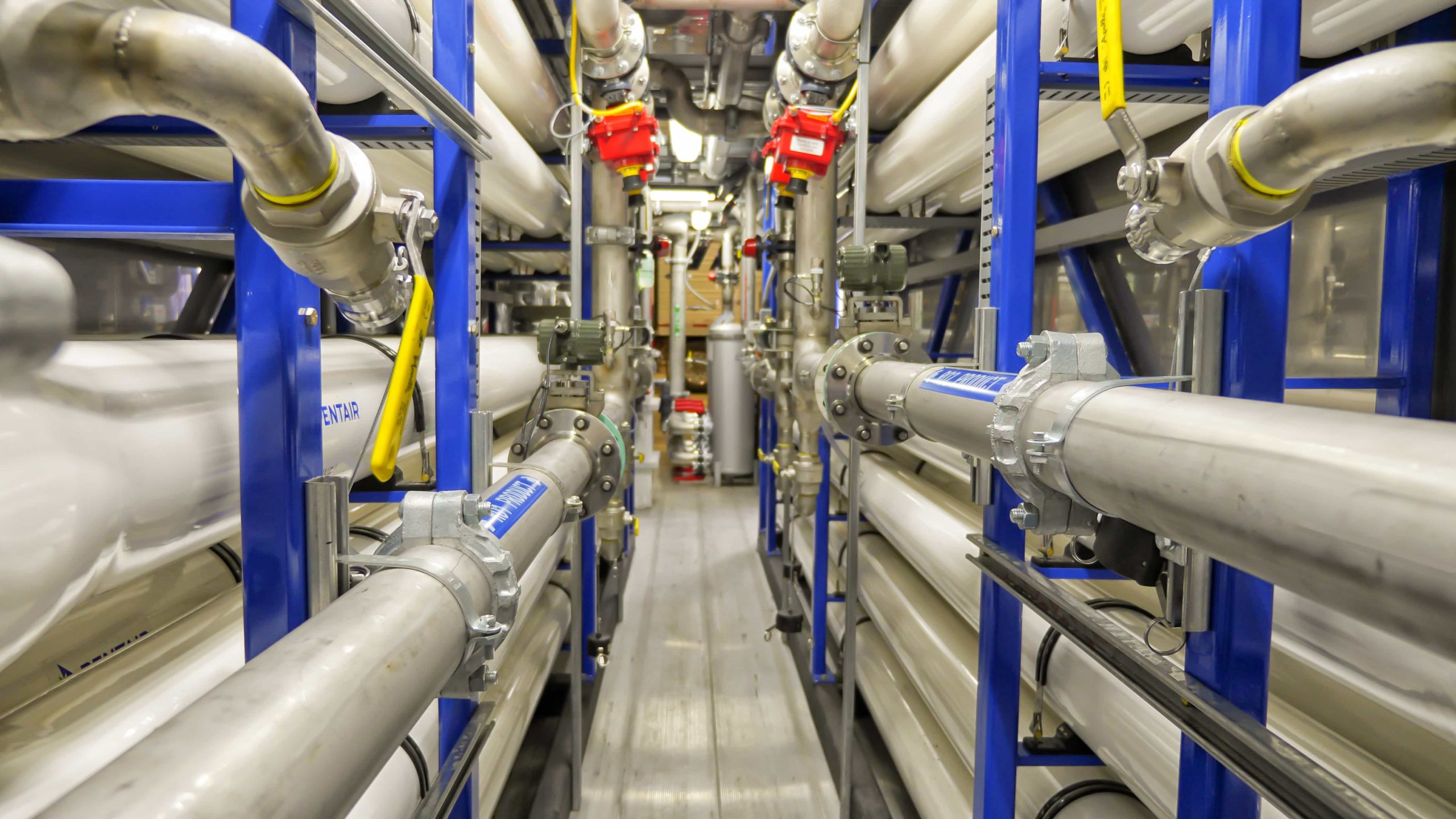Wastewater treatment, or the process of converting unsuitable water to a usable resource, has recently been utilized more frequently in the industrial process industries as demand for freshwater continues to rise. The primary goal of wastewater treatment is to remove as many pathogens as possible from the water supplied to produce freshwater. Here are some of the key benefits of incorporating wastewater (also called greywater) reuse into your system.
The Process
Before diving into the benefits, let’s take a look at the water reuse process as a whole. To give an example, we’ve listed the three steps for turning wastewater into tertiary wastewater or “recycled water.”
After the primary (sedimentation of solid wastes, biological treatments) and secondary (biofiltration, aeration sludge process, oxidation ponds) treatments are conducted, the tertiary (and final) treatment takes place. The tertiary treatment is the cleaning process that improves wastewater quality before it is reused, recycled or discharged to the environment by removing all remaining inorganic compounds and substances, such as the nitrogen and phosphorus, as well as pathogens like bacteria, viruses and parasites.
Economic Benefits
The most obvious positive of using reclaimed water is that it’s less expensive than potable water. In fact, using greywater for industrial process solutions costs almost 50 percent less than drinking water.
In an effort to tap into these savings, MPW Industrial Services helped one Southeastern U.S. power plant continue its use of municipal greywater while also supporting its environmental commitments. After installing a new ultrafiltration (UF)-reverse osmosis (RO)-demineralization system, the power plant was able to meet its quality requirements while also significantly reducing operating costs. Furthermore, in the six years since the UF-RO demineralization system was installed, the plant has not missed one call for power.
Environmental Benefits
Preventing water scarcity and saving resources for consumption is a major reason for the use of reclaimed water. While it may not always be considered as such, water is a renewable resource that can be replenished through the various treatment processes presented in this post. Water recycling not only provides economic benefits to a company’s bottom line, it also prevents pollution and helps plants maintain their sustainability and energy requirements.
The right wastewater treatment process to adopt is one that is unique to each particular situation based upon size and scope of the plant and the amount of byproduct is created, but there is little debate that producing and utilizing re cycled water helps the long-term economic viability of businesses and combats water shortages and pollution of water tables.
